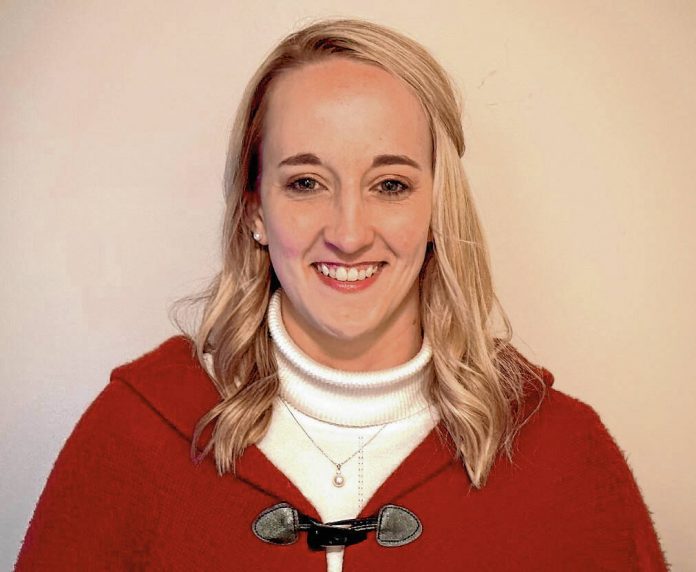
UK companies brace for growing cost from mental health crisis
Demand for company-funded mental health services is soaring in the UK, a sign that the private sector is increasingly picking up the tab for a wellbeing crisis the government is struggling to fund.
Health Assured, which provides employee assistance programs for more than 70,000 companies, is forecasting a 16% increase in wellbeing referrals next year. It has boosted its staff 76% in the last three years to supply more clinical experts who provide services like counseling and referrals for workers who have issues.
“What we are doing is prepping for the cost-of-living crisis impacting people more and more in the new year, especially for people on middle incomes with mortgage rates rising,” Kayleigh Frost, head of clinical support at Health Assured, said in an interview.
The shift reflects a growing mental health crisis in the UK, with a record 1.35 million people out of the labor market long-term due to depression, anxiety or bad nerves, according to figures from the Office for National Statistics. That’s a 40% increase on 2019.
Prime Minister Rishi Sunak’s government is concerned about a surge in long-term sickness among those of working age, which is both increasing costs in the National Health Service and leaving the labor market short of people to fill jobs. That’s in turn driving up wages and feeding inflation, putting pressure on the Bank of England to keep raising interest rates.
Almost 900,000 are also economically inactive with mental illness, a 32% increase on 2019. Finding a solution is likely to be a fixture of Chancellor of the Exchequer Jeremy Hunt’s autumn economic statement on Nov. 22. The growing number of sick working-age benefit claimants could cost the Treasury £15 billion ($18.7 billion) in lost taxes and higher welfare, the government’s independent forecaster said in July.
At the same time, the NHS is struggling to cope with those demands following the fallout from the Covid-19 pandemic and strains on its funding. The result is that companies are increasingly picking up the tab when employees run into trouble.
The shortfall in NHS capacity is putting a strain on EAP providers that companies increasingly rely on. Health Assured has increased its trauma-trained network of practitioners by almost 20% in the last year to cope with demand from companies desperate for their services.
“We could be overwhelmed because of the capacity of counseling resources,” said Karl Bennett, chair of the Employee Assistance Professionals Association UK.
Sunak’s government is looking to reduce the number of Britons declared too sick for work by reforming the system of “fit notes” issued by doctors. Lawmakers are concerned about how the system currently operate, since they are used by employees and those not working to support claims for financial assistance.
The Department for Work and Pensions has hinted that employers must take more responsibility for the problem too as office workers increasingly face burnout. The reforms include allowing mentally ill staff to work from home more and encouraging employers to expand their occupational health offer.
Employee Assistance Programs are quickly accessible by workers and a growing part of the benefits companies offer, costing an average £14 per employee per year in 2020, often with a return on investment.
Meanwhile, many treatments on the NHS require a long wait. More than 66% of patients waiting to start mental health treatment through the publicly funded body were waiting as long as 18 weeks in June. That fell short of the service’s target to serve 92% within that period.
Health Assured is increasingly seeing referrals from patients who have been sent by their doctors, as a result, according to Frost. It’s had to increase salaries to attract more staff, she added, and has also pre-empted a graduate program to add to its counseling fleet for next year.
There’s also been a surge in job ads offering part-time counseling and therapy work, data from job site Adzuna shows. There were 96 part-time therapist roles advertised in August 2023 versus 10 for that role four years ago.
Some of this growth is down to the lasting mental toll of the pandemic, said Kris Ambler, workforce lead at the British Association for Counselling and Psychotherapy. It could also be down to changing attitudes in workplaces and the cost of living crisis, he added.
The Retail Trust, a charity that supports more than 200 UK retailers, provided 5,994 counseling sessions in 2017. That soared to 10,316 in 2022. It’s also seeing an increase in the number of businesses seeking their support, with firms including BP Plc and WH Smith Plc partnering with the trust for the first time this year.
“Everything from the cost-of-living crisis to a rise in abusive customers and the financial and mental strain brought on by the pandemic is having a real impact on people working in retail,” said Chris Brook Carter, chief executive officer of the trust. “This has led to more retailers working with us to protect the wellbeing of their staff.”







